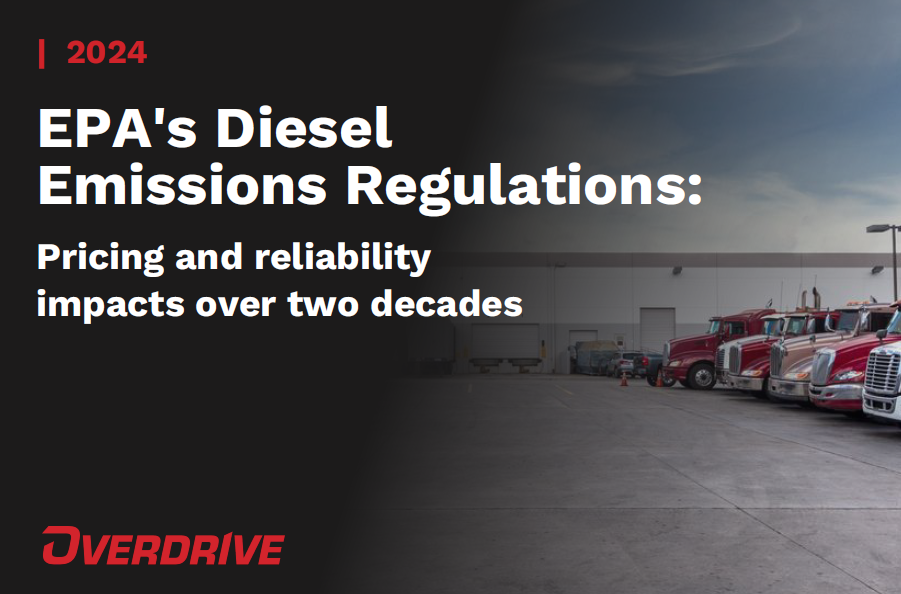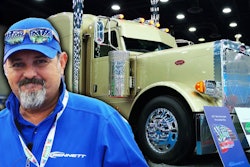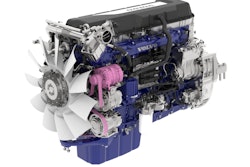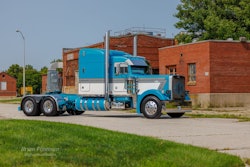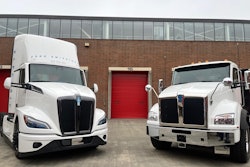Trucking news and briefs for Thursday, May 1, 2025:
California’s ACT, Low-NOx waivers could be on the chopping block with latest House vote to overturn
The U.S. House Wednesday evening passed two resolutions that would roll back strict state-level emissions standards put in place by the California Air Resources Board (CARB).
Lawmakers passed House Joint Resolutions 87 and 89, formally providing Congressional disapproval of the rules submitted by the Environmental Protection Agency relating to CARB’s Omnibus Low-NOx rule and the Advanced Clean Trucks (ACT) rule.
The resolution to repeal ACT passed by a 231-191 vote, and the resolution to repeal the Omnibus rule passed with a 225-196 vote.
ACT, which has been adopted by 11 states to date, requires medium- and heavy-duty truck manufacturers to sell increasing percentages of zero-emission vehicles from 2024-2035. The Low-NOx rule, which has been adopted by 10 states, imposes stringent emissions standards on new truck sales.
Both resolutions will need to also pass in the Senate and be signed by President Trump to officially revoke the EPA’s waivers allowing the rules to take effect.
[Related: Volvo, Mack unveil new CARB-compliant, low-NOx engines]

Trucking groups, who have long advocated that the rules are unachievable, applauded lawmakers.
“Setting national policy is the responsibility of Congress, not California," said Todd Spencer, president of the Owner-Operator Independent Drivers Association (OOIDA). "It’s no wonder small-business truckers have left the state in droves to find better opportunities elsewhere. For OOIDA members, vehicle reliability and affordability are critical. So far, there is no convincing evidence that electric commercial motor vehicles are a viable option for small-business truckers given the high costs and inadequate charging infrastructure.”
[Related: EPA 2027 diesel emissions regs: Class 8 truck price hikes in the offing]
Spencer added that “CARB's overreaching Omnibus NOx rules have already raised prices on new vehicles and increased maintenance costs for trucks currently on the road.”
American Trucking Associations President and CEO Chris Spear said that “California should never be given the keys to set policies that impact our interstate supply chains.”
[Related: Trucking company, WSTA among petitioners to overturn EPA waiver]
Truck driver gets 11 years in prison for drug trafficking charges
A California-based truck driver was sentenced this week to 11 years in federal prison for trafficking $2.5 million worth in cocaine that was destined for Chicago.
Ronald Coleman, 45, of Barstow, California, pleaded guilty earlier this year to one count of possession with intent to distribute five kilograms or more of cocaine. U.S. District Judge Iain D. Johnston imposed the sentence during a hearing in federal court in Rockford, Illinois.
Coleman admitted in a plea agreement that in April 2023, he was the driver of a tractor-trailer traveling through Whiteside County, Illinois, on I-88. Inside his trailer, he knowingly and intentionally possessed with the intent to distribute more than 91 kilograms of cocaine with a street value of $2.5 million.
According to the U.S. Attorney’s Officer for the Northern District of Illinois, Coleman was transporting the cocaine to a warehouse in Chicago, where he was to exchange the drugs for cash and transport the money back to California. Inside his truck, Coleman also possessed a firearm to protect himself, the cocaine, and the cash during the transport. Coleman expected to be paid for transporting the cocaine from California to Chicago.
[Related: Cargo thieves busted in L.A., $4M in goods recovered]
California DMV proposes new autonomous vehicle testing framework
The California Department of Motor Vehicles (DMV) has released proposed regulations for the testing and deployment of autonomous vehicles (AVs) on California’s public roads, focusing on both light- and heavy-duty commercial vehicles.
Under the proposed new framework, heavy-duty AVs weighing 10,001 pounds or more would now be able to be tested with a DMV-approved permit. The updated regulations also refine the guidelines for light-duty AVs, enhancing data reporting requirements and implementing recent legislative changes from AB 1777, which include updated protocols for AV interactions with first responders and a new procedure for law enforcement to report potential non-compliance with traffic regulations by AVs.
Applications received after the new regulations are implemented will be subject to a phased permitting process for AV testing and deployment. Initially, manufacturers must obtain a permit for testing with a safety driver. Subsequent phases require obtaining a Driverless Testing Permit and a Deployment Permit after completion of the required test miles and submission of a report detailing the testing conducted.
These steps ensure that manufacturers meet stringent safety requirements through a comprehensive process tailored to each manufacturer’s technology and operational environment, California DMV said.
[Related: DOT Secretary launches autonomous vehicle 'Innovation Agenda']
The release of these regulations marks the start of a 45-day public comment period, which ends on June 9. Written comments can be submitted to [email protected] during the 45-day period. The proposed regulations are available on the DMV Autonomous Vehicles webpage.
After the public comment period, the DMV will conduct a public hearing to gather further input on the regulations. Details regarding the date and location of this hearing will be announced separately, closer to the event, along with an invitation for public participation.
California lawmakers during the previous two legislative sessions have voted to ban driverless trucks from operating in the state, but each time the bills were vetoed by Gov. Gavin Newsom.
[Related: California governor again spikes driverless truck ban]
